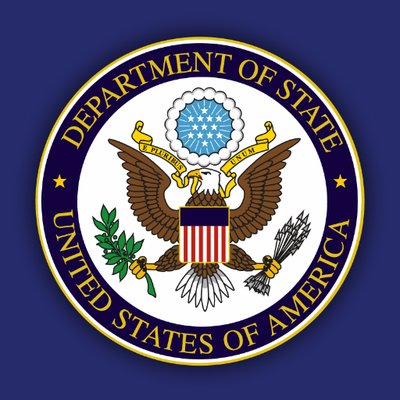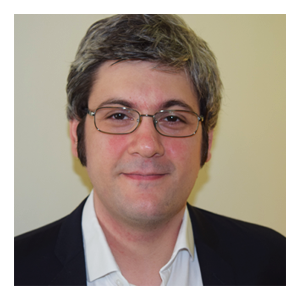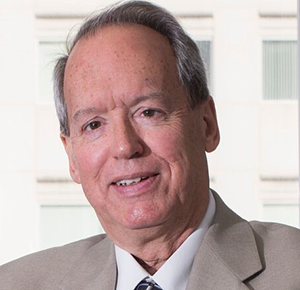SECRETARY POMPEO: Good afternoon. I’m pleased today to host State Councilor and Foreign Minister Wang Yi here in Washington for my first meeting with[1] the Secretary of State. Thank you. It’s wonderful to see you.
As you know, the President and this administration is committed to a constructive, results-oriented relationship with China, and I am glad to hear from State Councilor Wang that Beijing shares those goals. We had a great meeting.
We talked about preparations for the President’s June 12th meeting with Kim Jong-un. I had a chance to hear China’s perspective and appreciated their observations on the opportunity that is before the United States, the DPRK, and the world.
We discussed our firm commitment to maintain pressure on North Korea and to continue fully enforcing all relevant UN Security Council resolutions related to North Korea until we see and achieve the complete, verifiable, and irreversible denuclearization of the Korean Peninsula. We confirm today that we continue to expect all countries, including China, will meet their obligations and fully implement those measures.
China, the United States, the South Koreans, Japan – we are all fully committed to a bright future for the DPRK if Pyongyang is willing to denuclearize. Until that time arrives, the pressure will continue. I emphasized the President’s firm determination to secure a balanced and fair trade and investment relationship. We know that the discussions are ongoing. Our trade teams will continue their regular engagements on these very important matters to each of our two countries.
I also raised our concerns about the militarization of the South China Sea. We had a good discussion. We have other important priorities in our relationship with China as well, such as stopping the flow of opioids coming from China into the United States, protecting American intellectual property, and upholding human rights and religious freedom.
We had a wonderful discussion, where we hope that our two countries can build an excellent relationship, the same way that our two leaders have done, so that we can achieve great things for our two countries together. I look forward to traveling to visit with you in Beijing in the not-too-distant future and to continue the discussions that we had today.
Councilor Wang will now share some remarks, and then I’m happy to take a question at the conclusion of his remarks.
Welcome.
STATE COUNCILOR WANG: (Via interpreter) I am here for a stopover after I attended the G20 Foreign Ministers meeting in Argentina together with Secretary of the State. This is our first meeting. I hope to establish good working relationship with him. Because this is a stopover so there was not a plan for a joint press conference, Mr. Secretary of State was keen for us to meet with the press together, and I said we defer, as the guest, to our host.
Just now we had a very candid and in-depth discussion. We first discussed the bilateral relationship between China and the United States. We both believe that China-U.S. relationship is the most important bilateral relationship to each other. We both believe that our cooperation far outweighs differences, and opportunities we face far outweighs challenges.
We commend the strategic guidance that our two presidents provide to China-U.S. relationship, and we are ready to work to implement the series of consensuses reached by the two presidents, including respecting each other’s major interests and properly handling Taiwan and other sensitive issues. And we need to stay clear of disruptions and overcome difficulties and work together to ensure that China-U.S. relationship will continue to enjoy sound and healthy development.
We both believe that the two teams have conducted intensive discussions recently on trade. These discussions are constructive and have produced positive and important progress. We believe it is important that both sides are willing to do addition instead of reduction to ease as early as possible and finally address the trade imbalance. We hope that these common understanding could be implemented at an early date through further and detailed consultations. We both hope to strengthen cooperation on international and regional issues and facilitate the political solution to hot-spot issues. In general, we hope that with us working together the cooperation list between our two sides could be longer, and the list of differences will get shorter and shorter.
On the Korean nuclear issue that is at the center of attention, we also exchanged views. I listened to the analysis of Mr. Secretary on the recent development of the situation and his perspectives. I want to tell you that, first of all, China is firmly committed to denuclearization of the Korean Peninsula. This position will not change. At the same time, we believe that in achieving the process or the goal of denuclearization, it is necessary to address the legitimate security concerns of the DPRK at an appropriate time, and along with the realization of denuclearization, it is important to establish a long-term and effective peace mechanism on the Korean Peninsula.
And second, China firmly supports the meeting between the United States and the DPRK leaders. Direct and – contact and dialogue between the leaders is key to addressing the nuclear issue on the Korean Peninsula. We look forward to seeing the meeting take place as scheduled and be successful. We believe that President Trump and Chairman Kim Jong-un are fully able and they have the wisdom to make the right decision and bring peace to the Korean Peninsula and bring good news to the world.
And thirdly, China firmly honors its due international obligation. We will continue to fully and strictly implement UN Security Council resolutions on the DPRK and continue to work to maintain peace and stability of the Korean Peninsula. Thank you.
MS NAUERT: Thank you, sir. We have time for one question for each leader. First, we’ll go to Andrea Mitchell from NBC News, and then my counterpart will take over and call upon some of her colleagues for a question (inaudible).
QUESTION: Thank you very much, Under Secretary Nauert, Mr. Secretary, Councilor Wang. Mr. Secretary, first, do you anticipate that, contrary to some suggestions from the DPRK and certainly the President’s cautions yesterday, that there is a substantial chance that the summit will not take place? Do you believe that it will take place on November 12th, that the obstacles can be overcome?
SECRETARY POMPEO: On June – on June 12th.
QUESTION: Secondly, I wanted to ask you about the decision by the United States today to disinvite China from participating in the military exercises in the South China Seas. You discussed the militarization of the South China Seas, and I wanted to know from your talks whether you have been satisfied with China’s response. And Minister Wang, how concerned are you by this disinvitation to participate, and whether you too are satisfied that the meeting on November 12th will take place.
And finally, if you’ll forgive one more question. Mr. Secretary, you raised the issue of what happened to an American diplomat with mild brain trauma in Guangzhou, and it sounds very similar to what was experienced by our diplomats in Cuba. Are you satisfied with the security and safety of our diplomats in China? And if not, would you take retaliatory steps as the United States did against Havana and withdraw diplomats and also demand that diplomats leave the United States?
And finally, if I could ask for your indulgence, Minister Wang.
MS NAUERT: (Off-mike.)
SECRETARY POMPEO: That’s three, as I recall. Yes.
QUESTION: If you could explain what happened and whether you are taking steps to investigate the safety of our diplomats and perhaps other diplomats under your guardianship in your country. Thank you so very much.
SECRETARY POMPEO: So let me try to answer them in the reverse sequence that you asked them. First, with respect to the health incident that occurred, we’re concerned about it. It’s a serious medical incident. We want to make sure and take care of every one of our officers serving overseas.
We’ve learned about it only recently. We are still trying to identify all the circumstances surrounding it. We have notified China of what took place as best we know it, and they have responded in a way that is exactly the right response. They’ve honored their commitment under the Vienna Convention to take care of the diplomats that are serving in their country, and we truly appreciate this. They’ve offered to assist us in investigating how this came to be and are – and State Councilor Wang and I had a moment to talk about how we can endeavor to figure out what happened here to ensure that something like this doesn’t happen again in their country. And so we’re working together to resolve it. I look forward to – I hope we can figure it out. It’s very important that each and every one of our officers, wherever they’re serving in the world, is protected and taken care of.
Second, you asked about June 12th. We’re still working, driving towards the date. I hope that it takes place. Chairman Kim requested a meeting. We – President Trump agreed. We worked to find a date and a location, we had it settled, and I’m hopeful. What I can say for sure is our team is preparing up and down the administration. The President will absolutely be prepared for the meeting as well, and I hope that we can have this opportunity, this historic opportunity to do something that would truly transform this global challenge that’s been threatening the world for an awfully long time.
Can you remind me, Andrea, your second question? Ah, it was about RIMPAC and the disinvitation of RIMPAC.
QUESTION: The disinvitation --
SECRETARY POMPEO: Yes.
QUESTION: The disinvitation for the military exercises.
SECRETARY POMPEO: Yes. State Councilor Wang and I spoke about it. I will leave to DOD to talk about that. Only to say that we have expressed consistent concern about militarization of the South China Sea. We had a chance to talk about that. And I will leave to our militaries to talk about their efforts together.
QUESTION: Thank you.
QUESTION: (Via interpreter) I’m from CCTV. Recently the U.S. has taken some negative moves on Taiwan, and that has caused high tension and dissatisfaction on the part of the Chinese people. My question to Mr. Secretary is that: Is there any change in the U.S. on the “one China” principle? And also views from State Councilor Wang. Thank you.
SECRETARY POMPEO: No change. It’s the same policy that America’s had consistently. There has not been any change there. State Councilor Wang?
STATE COUNCILOR WANG: (Via interpreter) This is a question on Taiwan and whether the U.S. has changed its policy. That indeed is a reflection of the concerns of the Chinese people. Mr. Secretary has said that there’s no change to the U.S. policy, and we don’t want to see a change. There should not be a change. This touches upon the political foundation of China-U.S. relations. We would urge the U.S. to honor the “one China” principle and the stipulations in the three Joint Communiques and prudently and properly manage Taiwan-related issues to uphold the overall interests of China-U.S. relations and peace and stability across the straits.
Just now the U.S. reporter asked about a U.S. diplomat in China. Our understanding, this is an individual case of an American diplomat in Guangzhou. China has been investigating this matter in a very responsible manner and we haven’t found that any organization or individual has carried out such a sonic influence. We will stay in communication with the U.S. through diplomatic channels, and we would suggest that U.S. side can also carry out some internal investigation.
We don’t want to see that this individual case will be magnified, complicated, or even politicized. We hope people will not associate it with other unnecessary matters. China will, in accordance with the law, protect all the lawful rights and interests of foreigners in China, especially those of diplomats. That’s our firm commitment.
On the Pentagon’s decision or disinvitation of Chinese military in the RIMPAC exercise, we find that a very unconstructive move, nonconstructive move. It’s also a decision that’s taken lightly. It’s unhelpful to mutual understanding between China and the U.S. We hope the U.S. will change such a negative mindset. Both China, the U.S. are big countries, and we are well positioned to have greater cooperation at sea. Mil-to-mil exchanges will help to increase mutual trust. It will also help us to make greater efforts towards world peace and stability.
On the so-called militarization in the South China Sea, we talked about this issue just now. China is only building civilian and some necessary defense facilities on our own islands. That is the right to self-defense and preservation of every sovereign state. It is a normal deployment and has nothing to do with militarization, just like the U.S. has military presence in Hawaii, in Guam. And China’s deployment is at a much smaller scale than the U.S. It’s just out of necessary defense purposes. We don’t hope to see any exaggeration or hype-up of this matter.
Whether the summit between U.S. and DPRK will go ahead as scheduled, I made it very clear that we hope it will go ahead as scheduled and we hope it will be productive, it will deliver outcomes. There is already good basis and necessary conditions at the moment. And I told our U.S. colleagues that if you want to solve the problem, now is the time. If you want peace, now is the time. If you want to make history, now is the time. Thank you.
SECRETARY POMPEO: Thank you.
This piece first appeared on U.S. State Department website. The video of this event can be found here.


